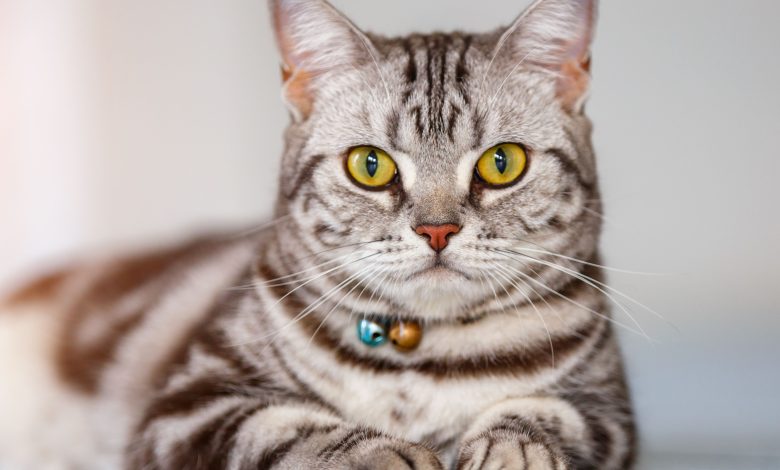Why are there cats that don’t meow?

You said, like any animal, they have their own way of communicating. They do it by cutting, sniffing, snorting, snorting, body language (lifting their tails, raising their backs, rubbing their bodies against our feet, etc.). It can be said that they have a wide range of communication skills, as they already do meow differently depending on their preferences.
However, there are often cats without meow. This pathology worries responsible owners because they interpret the condition as obvious and possibly serious anomaly.
In this case, it should be noted that most kittens do not in their first months of life. To communicate with their mother and siblings they use purrs, guessing and ringing small, accompanied by body language. That’s their nature. Desmond Morris, a well-known zoologist, warns that meowing is another way of interacting with humans and something they learn over time and do not apply in their animal relationships. In fact, he adds, wild animals do not. But when these behaviors occur in adulthood, it can obviously be a problem to look at and can be for the following reasons:
Physical causes
Hoarseness in cats is usually caused by diseases related to the respiratory system. The most common is ice that is easily exposed to extreme cold or from contact with water. But there are other serious pathologies.
Feline laryngitis
Severe cancer, caused by a respiratory tract infection or irritation due to excessive meowing or constant exposure to very low temperatures in the environment. This pathology manifests as symptoms of a cough, excessive saliva and even nausea.
Respiratory diseases
Bacteria in the respiratory system can result from exposure to extreme cold, inhalation of harmful gases or exposure to bacteria present in a particular food or environment, usually when the outside temperature is low.
Respiratory infections mainly affect cats ifeline rhinotracheitis and feline calicivirus. Symptoms include constant coughing, loss of appetite, apathy, fever, and nausea.
Feline bronchitis
It is a type of inflammation within the respiratory tract, which directly affects the bronchial tube, inhibits the oxygenation of the body and can lead to severe inflammation of the trachea. It shows symptoms such as fatigue, fever, watery eyes, trouble breathing, pale skin and severe urination. It is usually caused by excessive meowing and exposure to the cold for several hours.
These serious diseases, which in addition to being the reason why cats do not meow, can leave uncontrollable sequelae and even cause death. The best way to prevent it is to periodically veterinary check-ups and use the method so that your feline does not catch a cold, among them the use of injections, the preparation of hot spots and not allowing him to leave the house during the winter. .
- Psychological causes
In addition to respiratory pathologies, there are psychological problems that affect their behavior and explain why there are Cat is Mute that do not meow.
Stress
It causes stress in many animals and varies from one animal to another. Cats include, among others, the arrival of a new member of the household (their territory), walking, confinement, inactivity, persistent pain, and loneliness. But for whatever reason, their mental and physical health can be compromised, and one of the symptoms of their instability is not meowing.
Food
Fear can cause him anxiety, but it should be treated differently because its cause is one of the conditions he describes as dangerous to his integrity and well-being. It could be the presence of a vicious dog in his neighborhood, a person harming him, an offensive odor, other cats threatening him, etc. As a preventive measure, it reduces the actions exposing it, including meowing.
Learned habits
You or a family member may yell or hit you when you cry. He then learned that this was a practice he should not do because it offended his masters and, since it was not a matter of his own character, he easily abandoned it.
As already noted, all cats meow, unless they suffer from one of the problems observed. Thus, there are species known for standing soft, slow and even invisible, such as the outer cat, Havana, Scottish fold and Bengal among others.
Remember that the bobcat and other wild animals do not make meow. Homeowners have to do it some other way. Whenever there is a case of venom, it is recommended to visit a veterinarian and not to treat the animal, as the causes and causes of cat malnutrition may be different and the treatment of one or the other may vary greatly.
- Upper Respiratory Infection
Upper Respiratory Infections (URI), which often cause laryngitis, can cause hoarseness. In addition to crying, if your cat shows a runny nose, watery eyes, coughing, loss of appetite, fatigue, or yellowing or sneezing from the eyes or nose, take them to a doctor so that medications such as antibiotics can be prescribed.
- Hyperthyroidism
Hyperthyroidism or overactive thyroid glands, a disease that commonly occurs in older cats can cause hoarseness as well as weight loss. If you think this is the reason why your cat is not meow, take them to a vet for a blood test.
- Laryngeal paralysis
This is where the nerve damage to the larynx or voice box is caused to not work properly if your cat wants to breathe or meow. It is a serious disease that needs immediate treatment. Depending on the symptoms include: cough, weight loss, loss of appetite and shortness of breath.
- Growing up
Growth can occur in the throat, especially the vocal cords, causing malformed breasts or polyps – however they can sometimes cause throat cancer. Symptoms as well as crying include: changes in tone of voice, coughing, coughing and persistent ear infections. If you suspect that your cat is growing big – take them to a vet for a checkup (usually through a biopsy).




